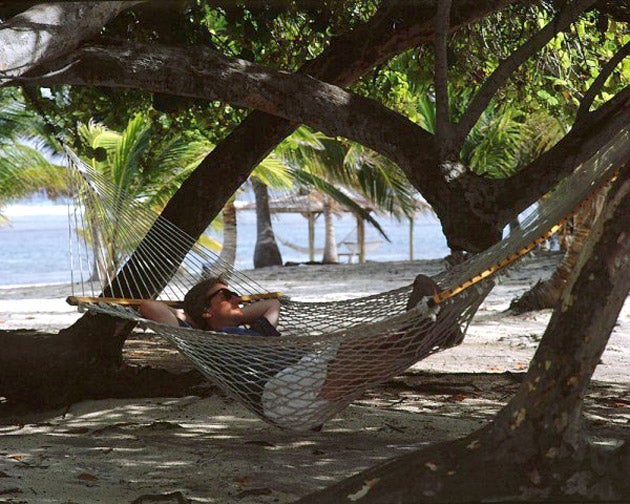Most of the Caribbean is under a high level travel warning, but islands still want visitors
In the Bahamas, for example, visitation through August increased nearly 50 per cent from last year

As winter approaches and travellers start dreaming of warm weather, the Caribbean beckons. But 19 months into the pandemic, much of the region is struggling with the delta variant surge and insufficient access to the coronavirus vaccine.
Late last month, the Pan American Health Organization warned that health systems in some Eastern Caribbean islands were becoming overwhelmed with the increase of cases and shortages of workers and supplies.
The majority of destinations in the Caribbean — as well as Bermuda and the Bahamas — are characterized by the Centers for Disease Control and Prevention as “Level 4” because of very high rates of Covid-19, which means the public health agency recommends avoiding travel.
Those countries and territories include such popular spots as Jamaica, Puerto Rico, Aruba, the U.S. Virgin Islands and, as of Monday, Barbados. In all, more than 20 destinations are listed as Level 4.
Another handful — including Anguilla, Bonaire, Turks and Caicos, and Trinidad and Tobago — are Level 3, which means Covid-19 is high and only vaccinated people should visit. Just a few are at the two lowest levels, including the Dominican Republic and Cayman Islands.
“The road to recovery in the region is not smooth,” Neil Walters, acting secretary general of the Caribbean Tourism Organization, said in an emailed statement. “The changes in the health situation and the ever-shifting travel arena could create much turmoil.”
The tourism group said that in the first half of the year, international tourist arrivals to the Caribbean reached 6.6 million — down 12 per cent from the first half of 2020, and more than 62 per cent from 2019. But some destinations have seen growth.
In the Bahamas, for example, visitation through August increased nearly 50 per cent from last year to more than 612,000 as airlines increased service.
I. Chester Cooper, Bahamas’ deputy prime minister and the minister of tourism, investments and aviation, said in an emailed statement that the country is optimistic that a “robust holiday season” is possible.
“Throughout this pandemic we have had to pivot and evolve to strike the delicate balance between protecting the health and safety of our citizens and visitors and creating opportunities that enable our vital tourism economy to begin recovering,” he said.
That is the balance the entire region has been trying to find as destinations have reopened with a variety of entry procedures.
“In the Caribbean, tourism is our bread and butter, so we really needed to ensure that we are able to keep our borders open,” said Vanessa Ledesma, acting CEO and director-general sceptical of the Caribbean Hotel and Tourism Association. “Everything we can do to mitigate the impact, we will continue to do so.”
In some countries, that means vaccine requirements, quarantines, mandatory testing, travel insurance coverage - or some combination of those rules. The hotel and tourism association maintains a grid online with various protocols to try to help potential visitors keep track.
“We know it’s been challenging and we have lobbied for harmonization across the region as much as possible,” Ledesma said. “Every destination has different limitations or requirements.”
That can be confusing for travellers who are trying to choose from a region with more than two dozen destinations - and just as many different mandates for entry. That lack of consistency has “added complexity and concern” for clients, said travel adviser Mike Salvadore, of 58 Stars Travel.
“And many clients are concerned that policies will change quickly, and they may be stuck or lose their investment,” he said in an email.
One thing that isn’t really discouraging visitors, Salvadore said: travel advisories. While there was a dip of interest in the summer after Europe’s reopening and during hurricane season, he said interest in the region moving into the fall and holiday period is “robust.”
“Caribbean travel was the first to see a resurgence in early 2021, and while most destinations continue to maintain a level 4 status with the CDC, it hasn’t kept travelers away,” Salvadore wrote.
Within the Caribbean, the foreign travel advisories are viewed with some frustration. Ledesma wrote last month that the industry has gone to great lengths to protect visitors and those who work in the tourism industry.
Clive Landis, who chairs the Covid-19 task force at the University of the West Indies in Barbados, said the recent change from Level 3 to 4 in Barbados doesn’t change anything about entry or exit protocols.
“We wonder what the value of it is,” he said.
Landis said the region has been skeptical of the travel warnings, especially when they are applied to countries that have overall low case rates such as Anguilla. More important, he said, is helping those destinations get all the vaccine doses they need.
“I think here in the Caribbean, our record — even now with the surge of the delta variant — is still, in terms of cases per capita ... well below the US,” Landis said. “It’s not as if they’re stepping into some kind of a hot spot that they’re not used to in their own country.”
WASHINGTON POST
Join our commenting forum
Join thought-provoking conversations, follow other Independent readers and see their replies
Comments
Bookmark popover
Removed from bookmarks